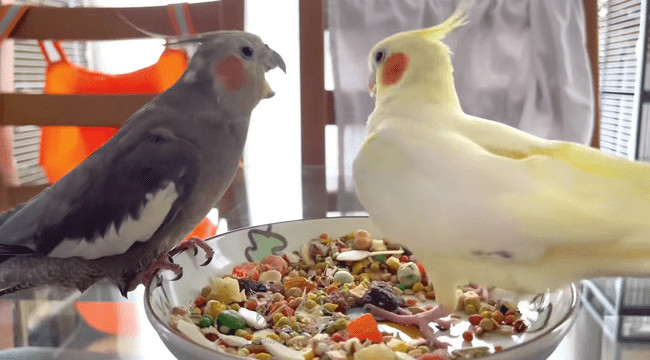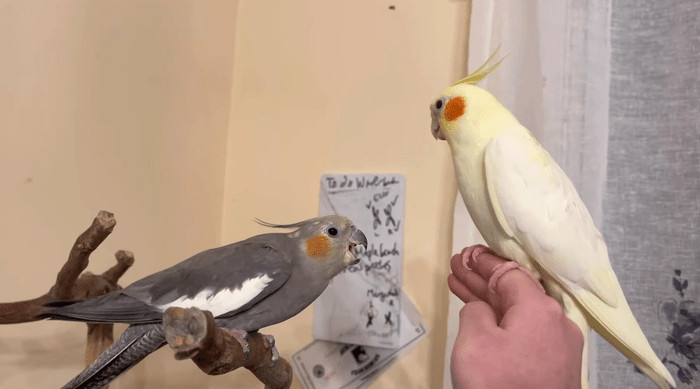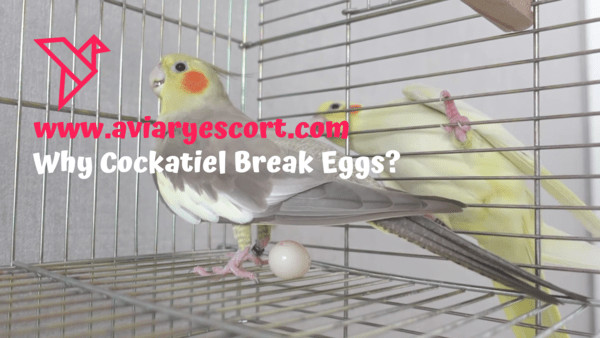Cockatiels are charming and affectionate avian companions known for their melodic chirps. However, as a cockatiel owner, you might encounter moments where your feathered friend expresses itself through loud, persistent screams. While these birds are naturally vocal creatures, incessant screaming might bewilder and concern pet owners. Understanding why cockatiels scream is crucial for their well-being and your sanity.
In this article, we delve into the various reasons behind your cockatiel’s vocal outbursts. From innate behaviors to environmental stressors, we’ll explore the potential triggers causing your feathered friend to belt out those high-pitched calls. Moreover, we’ll provide practical tips and strategies to help mitigate excessive screaming and foster a harmonious relationship between you and your beloved cockatiel.
Understanding Cockatiel Screaming
Cockatiels, renowned for their vocal prowess, communicate through various sounds, with chirps, whistles, and squawks being part of their natural repertoire. Understanding these vocalizations is key to decoding your pet’s emotions and needs.
Natural Vocalization
In their natural habitat, cockatiels vocalize to communicate with their flock, express happiness, seek attention, or warn against potential threats. Chirping and occasional loud calls are inherent behaviors and are generally not a cause for concern. These cheerful sounds often signify contentment or an invitation for social interaction.
Problematic Screams
However, when these vocalizations become incessant or unusually loud, it might signal an underlying issue. Problematic screams in cockatiels could stem from various factors such as stress, loneliness, boredom, illness, or discomfort. Identifying the specific triggers behind these excessive outbursts is crucial to address your pet’s well-being effectively.
Common Reasons Why Cockatiels Scream
Cockatiels, known for their sociable nature and expressive communication, use vocalization as a means of interaction and expression. However, excessive screaming can indicate underlying issues that need attention. Understanding these common triggers is crucial to address your pet bird’s well-being effectively.
1. Attention-Seeking Behavior
Cockatiels, being intelligent and social birds, may resort to screaming to gain attention from their owners. This behavior can be reinforced inadvertently when the owner responds to the screams.
Providing positive reinforcement for desirable behavior and ignoring excessive vocalization while rewarding quiet moments can help discourage attention-seeking screaming.
2. Boredom and Lack of Stimulation
Cockatiels thrive in environments that offer mental stimulation and engagement. When left without enough toys, interaction, or activities, they can become bored, leading to increased vocalization.
Introducing a variety of toys, rotating them regularly, and spending quality time interacting with your bird can alleviate boredom and reduce excessive screaming.
3. Loneliness and Separation Anxiety
Cockatiels form strong bonds with their human companions and may experience distress when left alone for extended periods. This separation anxiety can manifest as incessant screaming.
Providing companionship, either through interaction with the owner or introducing another compatible bird, can mitigate feelings of loneliness and reduce excessive vocalization.
4. Environmental Changes
Cockatiels are sensitive to changes in their environment. Factors like new pets, loud noises, or alterations in their surroundings can cause stress and prompt increased vocalization.
Introducing changes gradually, maintaining a consistent routine, and providing reassurance during disruptions can help reduce stress-induced screaming in cockatiels.
5. Health Issues
Cockatiels may scream excessively if they’re experiencing discomfort due to underlying health problems. Signs such as changes in eating habits, abnormal droppings, or unusual behavior should be promptly addressed by an avian veterinarian.
Treating health issues promptly can alleviate distress and reduce excessive screaming in cockatiels.
6. Territorial Behavior
Cockatiels can become territorial, especially around their cage or specific areas they perceive as their territory. This behavior may lead to heightened vocalization when they feel threatened or perceive intrusions.
Understanding their territorial boundaries and providing sufficient space can help mitigate this behavior.

7. Mating Season
During mating season, which typically occurs in spring, cockatiels may exhibit increased vocalization as a natural part of their breeding behaviors. This behavior might include singing, chirping, or loud calling.
Providing appropriate nesting materials and minimizing hormonal triggers can help manage this behavior.
8. Fear or Stress
Cockatiels are sensitive creatures prone to fear or stress, proven by scientific research, when exposed to unfamiliar or threatening situations. Loud noises, sudden movements, or new environments can trigger stress and result in heightened vocalization.
Gradual exposure, positive reinforcement, and creating a secure environment can help alleviate fear-induced screaming in cockatiels.
9. Limited Cage Space
Cockatiels require adequate space within their cage for movement, exercise, and mental stimulation. Confined or overcrowded cages can induce stress and frustration, leading to increased vocalization.
Providing a spacious and enriching environment within the cage, with room for perches, toys, and flying space, can alleviate this issue.
10. Isolation from Human Interaction
Cockatiels are social creatures that crave interaction and companionship, particularly with their human caregivers. Lack of regular human interaction or isolation from family members can result in feelings of loneliness, prompting heightened vocalization.
Spending quality time with your bird, engaging in activities, and providing attention can help curb excessive screaming due to isolation.
11. Unfamiliar Visitors or Guests
Cockatiels may react vocally when encountering unfamiliar visitors or guests in the household. The presence of strangers might cause stress or anxiety in these birds, leading to increased vocalization.
Introduce guests gradually to minimize stress on your pet bird and provide a secure and quiet space for your cockatiel during such situations.
Why Does My Cockatiel Scream When I Leave the Room?
Cockatiels, being social and highly attached to their human companions, often form strong bonds with their owners. When you leave the room or your cockatiel feels separated from you, it may trigger feelings of anxiety, loneliness, or even fear of abandonment. This reaction can manifest through loud and persistent screaming
Tips to Reduce Cockatiel Screaming
Understanding the common triggers behind cockatiel screaming is vital, but proactive measures can effectively reduce cockatiel screaming. Implementing a variety of strategies and techniques beyond identifying the reasons for screaming can significantly improve your pet bird’s behavior.
1. Enrichment through Foraging Activities
Incorporate foraging activities into your cockatiel’s daily routine. Use foraging toys or create DIY foraging opportunities by hiding treats in different areas of the cage. This mental stimulation engages their natural foraging instincts, reducing boredom and excessive vocalization.
2. Background Music or White Noise
Playing soft background music or using white noise machines can provide a soothing atmosphere for your cockatiel. Gentle, calming sounds can mask external noises and create a more serene environment, reducing stress-induced screaming.
3. Training with Positive Reinforcement
Ignoring the cockatiel’s screams can help discourage the behavior. If you respond every time your cockatiel screams, they might think it’s a way to get attention or treats. By not reacting to the screams, you’re teaching them that loud noises won’t result in a response or reward, gradually reducing the habit of excessive screaming.
Instead, wait for moments of quietness to give attention or treats, reinforcing calm behavior. This approach helps your cockatiel learn that being quiet brings positive attention rather than loud screaming.
4. Consistent Daily Routine
Establish a consistent daily routine for your cockatiel. Regular feeding times, play sessions, and bedtime schedules provide predictability, comfort, and a sense of security for your bird. Consistency helps reduce anxiety and minimize excessive vocalization.

5. Diverse Toys and Activities
Offer a variety of toys and activities to keep your cockatiel engaged and entertained. Rotate toys regularly to maintain interest and prevent boredom. Interactive toys, swings, ladders, and puzzle feeders provide mental stimulation, curbing the urge to vocalize excessively out of boredom.
Ultimate Technique to Quite Cockatiel
Utilizing a cage cover during periods of excessive screaming can be an effective technique to calm your cockatiel. Covering the cage partially or fully with a cloth or specially designed bird cage cover can create a darker, quieter environment, signaling to your bird that it’s time to rest. This method can help reduce visual stimuli and external disturbances, providing a sense of security and potentially soothing your cockatiel, thereby minimizing excessive vocalization.
However, it’s essential to ensure proper ventilation and avoid complete darkness for extended periods to maintain your bird’s well-being. Gradually introducing and acclimating your cockatiel to the cage cover can help them associate it with peaceful rest rather than distress.
When to seek professional help
If your bird’s vocalization patterns continue unabated despite your efforts to address the issue, or if it exhibits concerning behavioral or physical changes, it might be time to consult an avian veterinarian or an experienced avian behaviorist. An avian specialist can provide valuable insights, offering a tailored assessment to identify any underlying health issues or behavioral concerns. Seeking professional help is essential when your cockatiel displays persistent distress, unexplained alterations in behavior, or if its screaming is accompanied by signs of illness.
FAQs
1: Can cockatiels scream out of happiness?
While occasional vocalizations signify contentment, persistent screaming often indicates other needs or stressors.
2: How can I differentiate between normal chirping and excessive screaming?
Excessive screaming is continuous, intense, and may accompany behavioral changes or signs of distress in your cockatiel.
3: Are there specific times when cockatiels are more prone to screaming?
Changes in routine, environmental disturbances, or loneliness can trigger screaming, but individual preferences may vary.
4: Should I be concerned if my cockatiel suddenly starts screaming excessively?
Yes, sudden changes in behavior warrant attention. Monitor for any concurrent signs of stress or health issues.
5: Can training help in reducing excessive screaming in cockatiels?
Positive reinforcement training methods, along with addressing their needs, can gradually reduce excessive vocalization.



